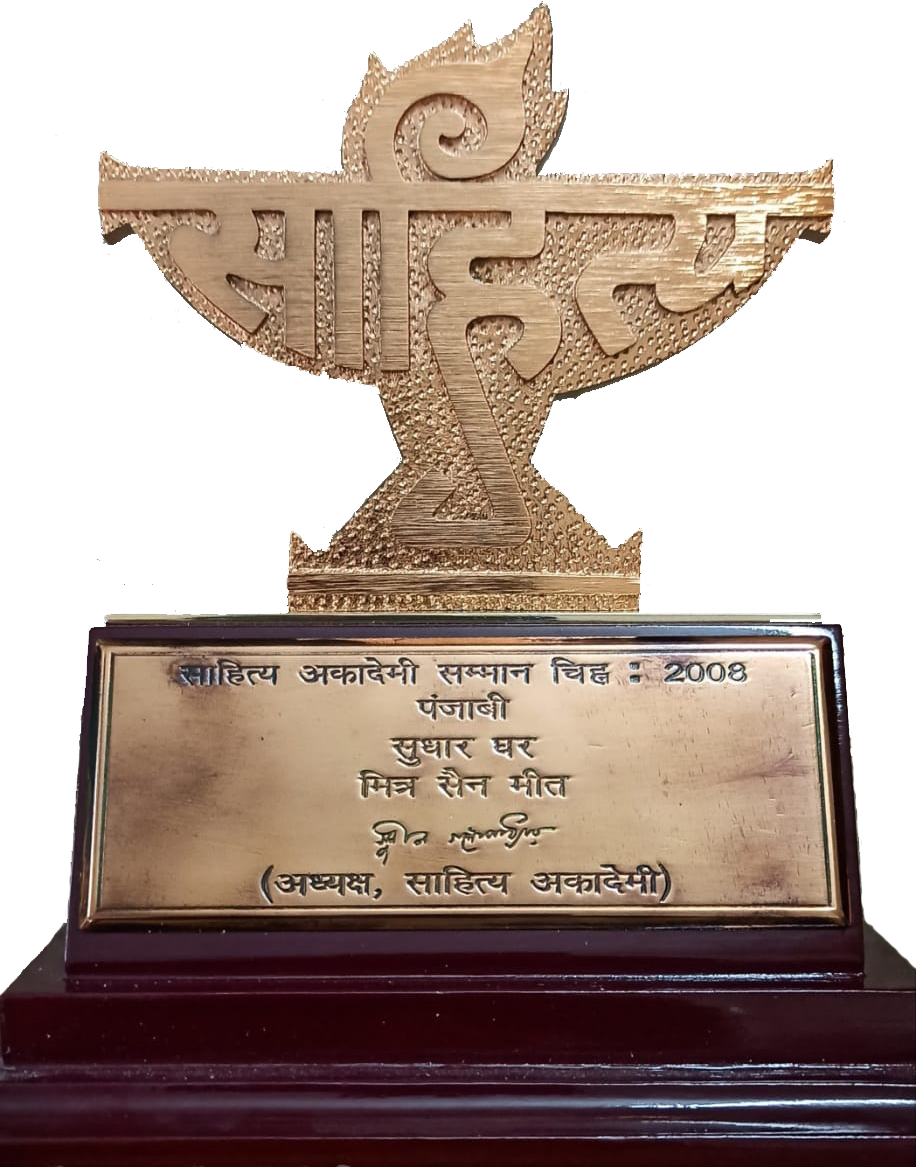ਪੁਲਿਸ ਹਿਰਾਸਤ (Police custody)
(ਧਾਰਾ 167 ਸੀ ਆਰ.ਪੀ.ਸੀ.)
ਜਦੋਂ ਕੋਈ ਵਿਅਕਤੀ ਪੁਲਿਸ ਦੇ ਦਖਲ ਦੇਣ ਯੋਗ ਕੋਈ ਜ਼ੁਰਮ ਕਰਦਾ ਹੈ ਤਾਂ ਉਸ ਦੋਸ਼ੀ ਨੂੰ ਪੁਲਿਸ ਅਫ਼ਸਰ ਗ੍ਰਿਫ਼ਤਾਰ ਕਰ ਸਕਦਾ ਹੈ। ਕੁਝ ਜ਼ੁਰਮ ਕਾਬਿਲ-ਏ-ਜ਼ਮਾਨਤ ਹੁੰਦੇ ਹਨ ਜਿਹਨਾਂ ਵਿੱਚ ਪੁਲਿਸ ਅਫ਼ਸਰ ਨੂੰ ਗ੍ਰਿਫ਼ਤਾਰੀ ਕਰਦਿਆਂ ਹੀ ਦੋਸ਼ੀ ਨੂੰ ਜ਼ਮਾਨਤ ਉੱਪਰ ਰਿਹਾਅ ਕਰਨਾ ਹੁੰਦਾ ਹੈ। ਬਾਕੀ ਬਚਦੇ ਜ਼ੁਰਮਾਂ ਵਿੱਚ ਦੋਸ਼ੀ ਨੂੰ ਪੁੱਛ-ਗਿੱਛ ਲਈ ਪੁਲਿਸ ਅਫ਼ਸਰ ਨੂੰ 24 ਘੰਟੇ ਤੱਕ ਆਪਣੀ ਹਿਰਾਸਤ ਵਿੱਚ ਰੱਖਣ ਦਾ ਅਧਿਕਾਰ ਹੈ। ਜੇ ਇਹਨਾਂ 24 ਘੰਟਿਆਂ ਦੌਰਾਨ ਪੁੱਛ-ਗਿੱਛ ਅਤੇ ਤਫ਼ਤੀਸ਼ ਮੁਕੰਮਲ ਨਹੀਂ ਹੁੰਦੀ ਤਾਂ ਪੁਲਿਸ ਅਫ਼ਸਰ, ਮੈਜਿਸਟ੍ਰੇਟ ਤੋਂ ਮੰਨਜ਼ੂਰੀ ਲੈ ਕੇ ਦੋਸ਼ੀ ਨੂੰ ਕੁਝ ਹੋਰ ਸਮੇਂ ਲਈ ਆਪਣੀ ਹਿਰਾਸਤ ਵਿੱਚ ਰੱਖ ਸਕਦਾ ਹੈ।
ਪੁਲਿਸ ਰਿਮਾਂਡ ਪ੍ਰਾਪਤ ਕਰਨ ਦੇ ਅਧਾਰ
ਪੁਲਿਸ ਹਿਰਾਸਤ ਹੇਠ ਲਿਖੇ ਕਿਸੇ ਇੱਕ ਜਾਂ ਵੱਧ ਅਧਾਰਾਂ ਤੇ ਮਿਲ ਸਕਦੀ ਹੈ:
1. ਵਾਰਦਾਤ ਸਮੇਂ ਵਰਤੇ ਗਏ ਹਥਿਆਰਾਂ ਦੀ ਬਰਾਮਦਗੀ ਲਈ
2. ਸਾਜ਼ਿਸ਼ ਨੂੰ ਨੰਗਾ ਕਰਨਾ ਲਈ
3. ਅਣਪਛਾਤੇ ਵਿਅਕਤੀਆਂ ਦੀ ਸ਼ਨਾਖਤ ਕਰਾਉਣ ਲਈ
4. ਦੋਸ਼ੀ ਵੱਲੋਂ ਮੁਦਈ ਧਿਰ ਦੀਆਂ ਖੁਰਦ-ਬੁਰਦ/ਚੋਰੀ ਕੀਤੀਆਂ ਗਈਆਂ ਵਸਤੂਆਂ ਆਦਿ ਨੂੰ ਬਰਾਮਦ ਕਰਾਉਣ ਆਦਿ ਲਈ ।
ਹਿਰਾਸਤ ਦਾ ਵੱਧੋ-ਵੱਧ ਸਮਾਂ
ਇੱਕ ਕੇਸ ਵਿੱਚ ਇੱਕ ਦੋਸ਼ੀ ਨੂੰ ਵੱਧੋ-ਵੱਧ 15 ਦਿਨਾਂ ਲਈ ਪੁਲਿਸ ਹਿਰਾਸਤ ਵਿੱਚ ਰੱਖਿਆ ਜਾ ਸਕਦਾ ਹੈ।
ਇਸ ਨੁਕਤੇ ਸਬੰਧੀ ਮਹੱਤਵਪੂਰਨ ਫੈਸਲੇ (Important case law on this matter)
1. ਜੁਡੀਸ਼ੀਅਲ ਮੈਜਿਸਟ੍ਰੇਟ ਪਹਿਲੀ ਹੀ ਸੁਣਵਾਈ ਵਿੱਚ ਦੋਸ਼ੀ ਨੂੰ ਕਿਸੇ ਵੀ ਹਿਰਾਸਤ (ਪੁਲਿਸ ਜਾਂ ਨਿਆਇਕ) ਵਿੱਚ ਭੇਜ ਸਕਦਾ ਹੈ। ਸਮੇਂ-ਸਮੇਂ ਤੇ ਪੁਲਿਸ ਹਿਰਾਸਤ ਨੂੰ ਨਿਆਇਕ ਅਤੇ ਨਿਆਇਕ ਹਿਰਾਸਤ ਨੂੰ ਪੁਲਿਸ ਹਿਰਾਸਤ ਵਿੱਚ ਬਦਲ ਸਕਦਾ ਹੈ। ਪਰ ਕਿਸੇ ਵੀ ਹਾਲਤ ਵਿੱਚ ਸਮੁੱਚੀ ਹਿਰਾਸਤ 15 ਦਿਨਾਂ ਤੋਂ ਵੱਧ ਨਹੀਂ ਹੋ ਸਕਦੀ।
Case : Central Bureau of Investigation, Special Investigating Cell-I, New Delhi v/s Anupam Kulkarni, 1992 Cri.L.J. 2768 (1) (First Judgment of the Supreme Court on the subject)
Para “4. ….. The Magistrate under this section can authorise the detention of the accused in such custody as he thinks fit but it should not exceed fifteen days in the whole. Therefore the custody initially should not exceed fifteen days in the whole. The custody can be police custody or judicial custody as the magistrate thinks fit. …..”
2. ਹਿਰਾਸਤ ਦੇ ਪਹਿਲੇ 15 ਦਿਨ ਬੀਤ ਜਾਣ ਬਾਅਦ ਦੋਸ਼ੀ ਨੂੰ ਕੇਵਲ ਨਿਆਇਕ ਹਿਰਾਸਤ ਵਿੱਚ ਹੀ ਰੱਖਿਆ ਜਾ ਸਕਦਾ ਹੈ।
Case : Central Bureau of Investigation, Special Investigating Cell-I, New Delhi v/s Anupam Kulkarni, 1992 Cri.L.J. 2768 (1)
Para “7. ….. These observations make it clear that if an accused is detained in police custody the maximum period during which he can be kept in such custody is only fifteen days either pursuant to a single order or more than one when such orders are for lesser number of days but on the whole such custody cannot be beyond fifteen days and the further remand to facilitate the investigation can only be by detention of the accused in judicial custody.”
It was further observed as under:-
Para “8. ….. Taking the plain language into consideration particularly the words “otherwise than in the custody of the police beyond the period of fifteen days” in the proviso it has to be held that the custody after the expiry of the first fifteen days can only be judicial custody during the rest of the periods of ninety days or sixty days and that police custody if found necessary can be ordered only during the first period of fifteen days. To this extent the view taken in Dharam Pal’s case is correct.”
3. ਜਦੋਂ ਅਜਿਹੇ ਦੋਸ਼ੀ ਨੂੰ ਜੁਡੀਸ਼ੀਅਲ ਮੈਜਿਸਟ੍ਰੇਟ ਸਾਹਮਣੇ ਪੇਸ਼ ਕੀਤਾ ਜਾਂਦਾ ਹੈ ਤਾਂ ਜੁਡੀਸ਼ੀਅਲ ਮੈਜਿਸਟ੍ਰੇਟ, ਕਾਰਜਕਾਰੀ ਮੈਜਿਸਟ੍ਰੇਟ ਵੱਲੋਂ ਦੋਸ਼ੀ ਨੂੰ ਜਿੰਨੇ ਦਿਨਾਂ ਲਈ ਹਿਰਾਸਤ ਵਿੱਚ (ਪੁਲਿਸ ਅਤੇ ਨਿਆਇਕ) ਭੇਜਿਆ ਗਿਆ ਸੀ, ਉਨੇ ਦਿਨ 15 ਦਿਨਾਂ ਵਿੱਚ ਘਟਾ ਕੇ, ਬਾਕੀ ਬਚਦੇ ਦਿਨਾਂ ਲਈ ਦੋਸ਼ੀ ਨੂੰ ਪੁਲਿਸ ਜਾਂ ਨਿਆਇਕ ਹਿਰਾਸਤ ਵਿੱਚ ਭੇਜਣ ਦਾ ਅਧਿਕਾਰ ਹੈ। ਹਿਰਾਸਤ ਦੇ ਪਹਿਲੇ 15 ਦਿਨਾਂ ਦੌਰਾਨ, ਦੋਵੇਂ ਮੈਜਿਸਟ੍ਰੇਟ ਦੋਸ਼ੀ ਦੀ ਪੁਲਿਸ ਹਿਰਾਸਤ ਨੂੰ ਕੁੱਲ 15 ਦਿਨਾਂ ਤੋਂ ਵਧਾ ਨਹੀਂ ਸਕਦੇ।
Case : Central Bureau of Investigation, Special Investigating Cell-I, New Delhi v/s Anupam Kulkarni, 1992 Cri.L.J. 2768 (1)
The Judicial Magistrate can order detention, in such custody as he deems fit, for the rest of the first 15 days, after deducting the period of detention ordered by the Executive Magistrate.
The section also lays down that the Judicial Magistrate who is competent to make further orders of detention, for the purposes of computing the period of detention has to take into consideration the period of detention ordered by the Executive Magistrate. Therefore on a combined reading of Section 167(2) and (2A) it emerges that the Judicial Magistrate to whom the Executive Magistrate has forwarded the arrested accused can order detention in such custody namely police custody or judicial custody under Section 167(2) for the rest of the first fifteen days after deducting the period of detention ordered by the Executive Magistrate. The detention thereafter could only be in judicial custody.






More Stories
ਤਫ਼ਤੀਸ਼ ਦੌਰਾਨ ਪੁਲਿਸ ਅਫ਼ਸਰ ਅਤੇ ਅਦਾਲਤ ਦੇ ਅਧਿਕਾਰ /Powers of Police and of Court
ਕੇਸ ਡਾਇਰੀ (Case Diary)
ਕਿਸੇ ਥਾਂ ਦੀ ਤਲਾਸ਼ੀ /Search of a place